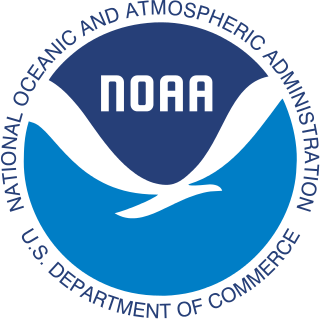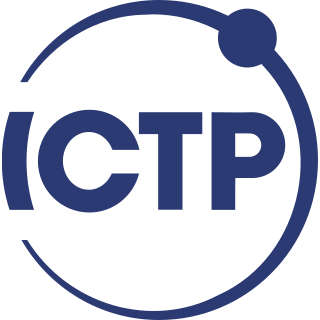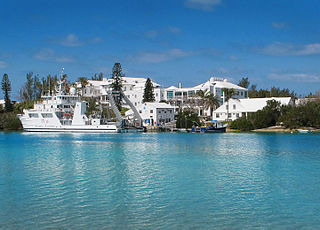Related Research Articles

Australian Catholic University (ACU) is a public university in Australia. It has seven Australian campuses, and also maintains a campus in Rome. In 2018 it had 34,834 students.
The Science Council is a UK organisation that was established by Royal Charter in 2003. The principal activity of The Science Council is the promotion of the advancement and dissemination of knowledge of and education in science pure and applied, for the public benefit. The Science Council is the Competent Authority with respect to the European Union directive 2005/36/EC.
The University Corporation for Atmospheric Research (UCAR) is a US nonprofit consortium of more than 100 colleges and universities providing research and training in the atmospheric and related sciences. UCAR manages the National Center for Atmospheric Research (NCAR) and provides additional services to strengthen and support research and education through its community programs. Its headquarters, in Boulder, Colorado, include NCAR's Mesa Laboratory, designed by I.M. Pei.
The Global Warming Petition Project, also known as the Oregon Petition, is a petition urging the United States government to reject the global warming Kyoto Protocol of 1997 and similar policies. Some consider it to be a political petition designed for disinforming and confusing the public about the scientific results and the consensus of climate change research.

Quaid-I-Azam University Islamabad, founded as University of Islamabad, is a public research university in Islamabad, Pakistan.
CRDF Global is an "independent nonprofit organization that promotes safety, security, and sustainability through science and innovation." CRDF Global was authorized by the U.S. Congress in 1992 under the FREEDOM Support Act and established in 1995 by the National Science Foundation. This unique public-private partnership promotes international scientific and technical collaboration through grants, technical resources, and training. CRDF Global was originally named the U.S. Civilian Research and Development Foundation for the Independent States of the Former Soviet Union (CRDF).

Oceanic and Atmospheric Research (OAR) is a division of the National Oceanic and Atmospheric Administration (NOAA). OAR is also referred to as NOAA Research.

The Cooperative Institute for Research in Environmental Sciences (CIRES) is a research institute that is sponsored jointly by the National Oceanic and Atmospheric Administration (NOAA) Office of Oceanic and Atmospheric Research (OAR) and the University of Colorado Boulder (CU). CIRES scientists study the Earth system, including the atmosphere, hydrosphere, cryosphere, biosphere, and geosphere, and communicate these findings to decision makers, the scientific community, and the public.

The National Institute of Water and Atmospheric Research or NIWA, is a Crown Research Institute of New Zealand. Established in 1992, NIWA conducts research across a broad range of disciplines in the environmental sciences. It also maintains nationally and, in some cases, internationally important environmental monitoring networks, databases, and collections.

The National Centre of Scientific Research "Demokritos" is a research center in Greece, employing over 1,000 researchers, engineers, technicians and administrative personnel. It focuses on several fields of natural sciences and engineering and hosts laboratory facilities.

The Abdus Salam International Centre for Theoretical Physics (ICTP) is an international research institute for physical and mathematical sciences that operates under a tripartite agreement between the Italian Government, United Nations Educational, Scientific and Cultural Organization (UNESCO), and International Atomic Energy Agency (IAEA). It is located near the Miramare Park, about 10 kilometres from the city of Trieste, Italy. The centre was founded in 1964 by Pakistani Nobel Laureate Abdus Salam.
The Indian Institute of Remote Sensing is a premier institute for research, higher education and training in the field of Remote Sensing, Geoinformatics and GPS Technology for Natural Resources, Environmental and Disaster Management under the Indian Department of Space, which was established in the year 1966. It is located in the city of Dehradun, Uttarakhand.

The Bermuda Institute of Ocean Sciences is an independent, non-profit marine science and education institute located in Ferry Reach, St. George's, Bermuda. The Institute, founded in 1903 as the Bermuda Biological Station, hosts a full-time faculty of oceanographers, biologists, and environmental scientists, graduate and undergraduate students, K-12 groups, and Road Scholar groups. BIOS's strategic mid-Atlantic Ocean location has at its doorstep a diverse marine environment, with close proximity to deep ocean as well as coral reef and near shore habitats.
The Earth Institute Center for Environmental Sustainability, formerly known as the Center for Environmental Research and Conservation (CERC), consists of two institutions located at Columbia University. The first is an Earth Institute, which was begun as the first Earth Institute in 1995. The second is the Secretariat for the Consortium for Environmental Research and Conservation, a collaboration between the Earth Institute, the American Museum of Natural History, the New York Botanical Garden, The Wildlife Conservation Society and EcoHealth Alliance on biodiversity conservation.

The Environmental Molecular Sciences Laboratory is a biological science facility at the Pacific Northwest National Laboratory in Richland, Washington, United States. It is operated by the U.S. Department of Energy (DOE), which funds and oversees its research and operations.
The science of team science (SciTS) field encompasses both conceptual and methodological strategies aimed at understanding and enhancing the processes and outcomes of collaborative, team-based research. It is useful to distinguish between team science (TS) initiatives and the science of team science (SciTS) field. Team science initiatives are designed to promote collaborative, and often cross-disciplinary approaches to answering research questions about particular phenomena. The SciTS field, on the other hand, is concerned with understanding and managing circumstances that facilitate or hinder the effectiveness of collaborative science, and evaluating the outcomes of collaborative science. Its principal units of analysis are the research, training, and community-based translational initiatives implemented by both public and private sector organizations.
The MDI Biological Laboratory is an independent non-profit biomedical research institution founded in 1898 and located in Salisbury Cove, Maine, on Mount Desert Island. Its mission is to improve human health and well- being through basic research, education, and development ventures that transform discoveries into cures. In 2013, the Laboratory was designated a Center for Biomedical Research Excellence (COBRE) by the National Institutes of Health, which awarded the Laboratory a grant of $13 million over five years to expand the institution’s research program. The MDI Biological Laboratory has a full-time staff of 63, and will offer 23 research training courses in 2014.

The Institut national de la recherche agronomique was a French public research institute dedicated to agricultural science. It was founded in 1946 and is a Public Scientific and Technical Research Establishment under the joint authority of the Ministries of Research and Agriculture. From 1 January 2020 the INRA merged with the IRSTEA to create the INRAE.
Data Observation Network for Earth (DataONE) is a platform for environmental and ecological science, to provide access to Earth observational data. Supported by funding from the US National Science Foundation as one of the initial DataNet programs in 2009, funding was renewed in 2014 through April 2015. DataONE helps preserve, access, use, and reuse of multi-discipline scientific data through the construction of primary cyberinfrastructure and an education and outreach program. DataONE provides scientific data archiving for ecological and environmental data produced by scientists. DataONE's goal is to preserve and provide access to multi-scale, multi-discipline, and multi-national data. Users include scientists, ecosystem managers, policy makers, students, educators, librarians, and the public.
References
- ↑ Website. Archived 2005-05-31 at the Wayback Machine Accessed: March 20, 2013.
